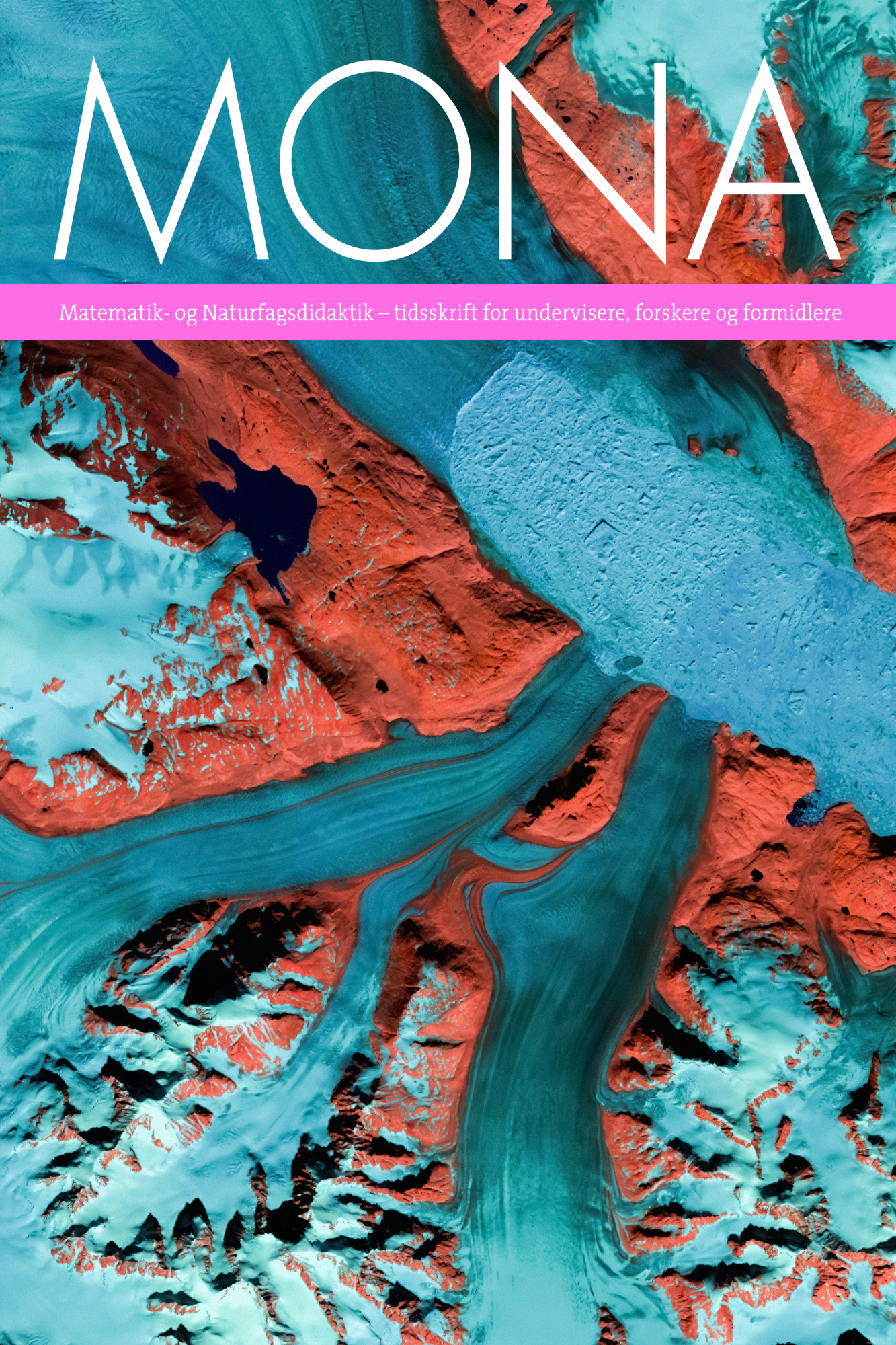Resumé
CARTAGO er en forskningsbaseret ramme for arbejdet med elevers motivation i diverse naturfaglige sammenhænge. I artiklen præsenteres CARTAGO-rammen og det grundlag, som den bygger på. Dernæst gives der eksempler på, hvorledes CARTAGO har været brugt til udvikling af læreres motivationspraksis i forbindelse med efteruddannelse, som redskab for undervisningsplanlægning hos lærerstuderende og til forskningsmæssig analyse af undervisningsvideoer. Artiklen indeholder
yderligere et metodebidrag, idet der fremlægges en liste med internationalt validerede survey-items, som kan bruges til forskning og effektmåling i forlængelse af CARTAGO. Der er således rige muligheder for at lade CARTAGO kvalificere meget af det arbejde, som aktuelt pågår med elevmotivation som mål.
Referencer
Ames, C. (1992). Classrooms: Goals, structures, and student motivation. Journal of Educational Psychology, 84, 261‑271. https://psycnet.apa.org/buy/1993‑03487‑001
Anderman, L. & Leake, V. (2005). The ABCs of motivation: An alternative framework for teaching preservice teachers about motivation. The Clearing House, 78(5), 192‑196. https://www.jstor.org/stable/30189907
Bandura, A. (1997). Self-efficacy: The exercise of control. W.H. Freeman.
Cherubini, G., Zambelli, F. & Boscolo, P. (2002). Student motivation: An experience of inservice education as a context for professional development of teachers. Teaching and Teacher Education, 18(3), 273‑288. https://doi.org/10.1016/S0742‑051X(01)00069‑5
Clarke, D. & Hollingsworth, H. (2002). Elaborating a model of teacher professional growth. Teaching and Teacher Education, 18(8), 947‑967. https://doi.org/10.1016/S0742‑051X(02)00053‑7
Dolin, J., Ingerslev, G.H. & Jørgensen, H.S. (2020). Gymnasiepædagogik – en grundbog (4. udg.). Hans Reitzels Forlag.
Global Science Forum. (2008). Encouraging student interest in science and technology studies. OECD.
Guba, E. & Lincoln, Y. (1995). Emerging criteria for quality in qualitative and interpretive research. Qualitative Inquiry, 1(3), 275‑289. https://doi.org/10.1177/107780049500100301
Jenkins, L. (2011). Using citizen science beyond teaching science content: A strategy for making science relevant to students’ lives. Cultural Studies of Science Education, 6, 501‑508. https://doi.org/10.1007/s11422‑010‑9304‑4
Krogh, L.B. & Andersen, H.M. (2020). Motivation. I J. Dolin, G.H. Ingerslev & H.S. Jørgensen (red.), Gymnasiepædagogik – en grundbog (4. udg., s. 250‑267). Hans Reitzels Forlag.
Krogh, L.B., Dolin, J. & Petersen, M.R. (2022). De vigtigste udfordringer i det danske naturfagsdidaktiske felt. MONA, 2022(2), 24‑42. https://tidsskrift.dk/mona/article/view/132756/177878
Krogh, L.B., Elgaard, J.F., Secher, A. & Daugbjerg, P. (2021). Pigerne stikker af fra drengene i karakterer til den fællesfaglige prøve. MONA, 2021(1), 6‑26. https://tidsskrift.dk/mona/article/view/125070/171870
Krogh, L.B., Waadegaard, N. & Nielsen, K. (2019). SUN-projektet: Skolebaseret udvikling af naturfag og kapacitet i gymnasiet. MONA, 2019(3), 47‑67. https://tidsskrift.dk/mona/article/view/115582/163891
Martin, A.J. (2008). Enhancing student motivation and engagement: The effects of a multidimensional intervention. Contemporary Educational Psychology, 33(2), 239‑269. https://doi.org/10.1016/j.cedpsych.2006.11.003
NAFA. (2024). Om NAFA. Lokaliseret d. 11.12.2024 fra https://nafa.nu/om-nafa/
OECD. (2016). PISA 2015 results (volume II): Policies and practices for successful schools. OECD. https://doi.org/10.1787/9789264267510-en
Osborne, J. & Dillon, J. (2008). Science education in Europe: Critical reflections. King’s College London.
Osborne, J., Simon, S. & Collins, S. (2003). Attitudes towards science: A review of the literature and its implications. International Journal of Science Education, 25(9), 1049‑1079. https://doi.org/10.1080/0950069032000032199
Palmer, D. (2005). A motivational view of constructivist-informed teaching. International Journal of Science Education, 27(15), 1853‑1881. https://doi.org/10.1080/09500690500339654
Pintrich, P.R. (2003). A motivational science perspective on the role of student motivation in learning and teaching contexts. Journal of Educational Psychology, 95(4), 667‑686. https://doi.org/10.1037/0022‑0663.95.4.667
Rocard, M., Csermely, P., Jorde, D., Lenzen, D., Walberg-Henriksson, H. & Hemmo, V. (2007). Science education now: A renewed pedagogy for the future of Europe. Office for Official Publications of the European Communities.
Ryan, R.M. & Deci, E.L. (2000). Self-determination theory and the facilitation of intrinsic motivation, social development, and well-being. American Psychologist, 55(1), 68‑78. https://doi.org/10.1037/0003‑066X.55.1.68
Sherin, M.G. (2007). The development of teachers’ professional vision in video clubs. I R. Goldman, R. Pea, B. Barron & S. Derry (red.), Video research in the learning sciences (s. 383‑395). Erlbaum.
Stipek, D., Givvin, K.B., Salmon, J.M. & Macgyvers, V.L. (1998). Can a teacher intervention improve classroom practices and student motivation in mathematics? The Journal of Experimental Education, 66(4), 319‑337. https://doi.org/10.1080/00220979809601404
Tsivitanidou, O.E., Gray, P., Rybska, E., Louca, L. & Constantinou, C. (red.). (2018). Professional development for inquiry-based science teaching and learning. Contributions from science education research, volume 5. Springer.
Undervisningsministeriet. (2015). Forslag til Lov om ændring af lov om folkeskolen (Indførelse af fælles prøve i fysik/kemi, biologi og geografi, ændring af bedømmelsesordning ved folkeskolens skriftlige prøver m.v.). https://www.retsinformation.dk/api/pdf/169127
Undervisningsministeriet. (2018). National naturvidenskabsstrategi. https://www.uvm.dk/-/media/filer/uvm/aktuelt/pdf18/180313-national-naturvidenskabsstrategi.pdf

